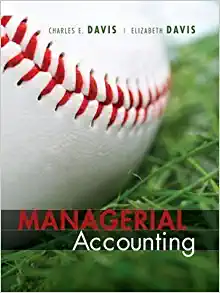Question
These are some tax accounting questions as follows: 6. (a) Generally, what accounting period may a taxpayer adopt? (b) What taxable years must the following
These are some tax accounting questions as follows: 6. (a) Generally, what accounting period may a taxpayer adopt? (b) What taxable years must the following adopt: (1) A partnership (2) A corporation (3) An S corporation (4) A personal service corporation (5) A taxable trust (6) A tax exempt trust (7) An estate 8. A forms X, a corporation. X conducts a business for 3 years and uses the calendar year. X sells all of its assets and becomes dormant for 5 years. X then acquires a new business. X would like to adopt a new taxable year. May it? 14. James is a sole practitioner CPA. His rent is due on the first day of each month. If James is a calendar year, cash basis taxpayer, when is he permitted to deduct his rent in the following: a. He pays his December, 20X7 rent on January 12, 20X8. b. He pays his January, 20X8 rent in December, 20X7. c. He pays his November, 20X7 rent in December, 20X6. d. d. He pays his entire 20X8, 20X9, and 201X rents in December, 20X7. 15 a. Kevin owns several apartment complexes. In order to assure an adequate supply of heating oil for the winter, he must make a deposit of 50% for the amount of heating oil he orders in December. If he uses less oil than the amount ordered, he may receive a refund of a part of his deposit. When may Kevin deduct the December payment? b. Would your answer be different if the payment was not a deposit but an irrevocable payment? 16. Suppose X, in question 15, used FIFO for the group for projections and financial forecasts? 17. A is a well?known author, and B, A's brother is a celebrated inventor. During 20X7, A expends $40,000 for investigative expenses for his new novel Cumberland Path, a story of the first moonshiners in Virginia. Meanwhile, B has expended $25,000 to develop a humane mousetrap. The mousetrap has a spring that throws the mouse into a bucket which is then emptied outside and the mouse runs free. Can any of these costs be expensed? 20. (a) What is a private annuity? (b) Why would a taxpayer enter into a private annuity? (c) May a private annuity be secured? (d) What tables must be used? 21. Father, age 50, sells an office building worth $500,000 (assume all of the property is depreciable) to his son in exchange for a private annuity. The father has a basis of $200,000 and he receives an unsecured promise to pay him $60,000 per year for the rest of his life. The interest rate for annuities is 10% and the father's life expectancy is 25 years. (a) What is the composition of each payment? (b) What basis does son use for depreciation? (c) Suppose the father died after year 3. What are the ?consequences? (d) Suppose son sold the building while father was alive. How ?would gain or loss be measured. (e) Is any part of the annuity payment ?deductible as interest? 22. What is the recurring item exception? When may it be used? 23. Each year David hires Robert to come in and thoroughly clean the factory when it is closed between December 20 and January 10. The cost of Robert's service is $1,000. When may David accrue this liability? 
Step by Step Solution
There are 3 Steps involved in it
Step: 1

Get Instant Access to Expert-Tailored Solutions
See step-by-step solutions with expert insights and AI powered tools for academic success
Step: 2

Step: 3

Ace Your Homework with AI
Get the answers you need in no time with our AI-driven, step-by-step assistance
Get Started


